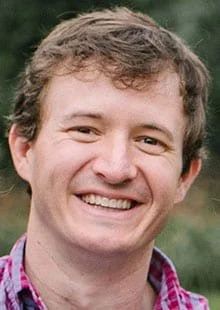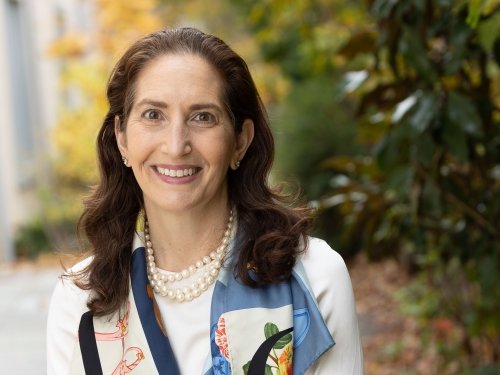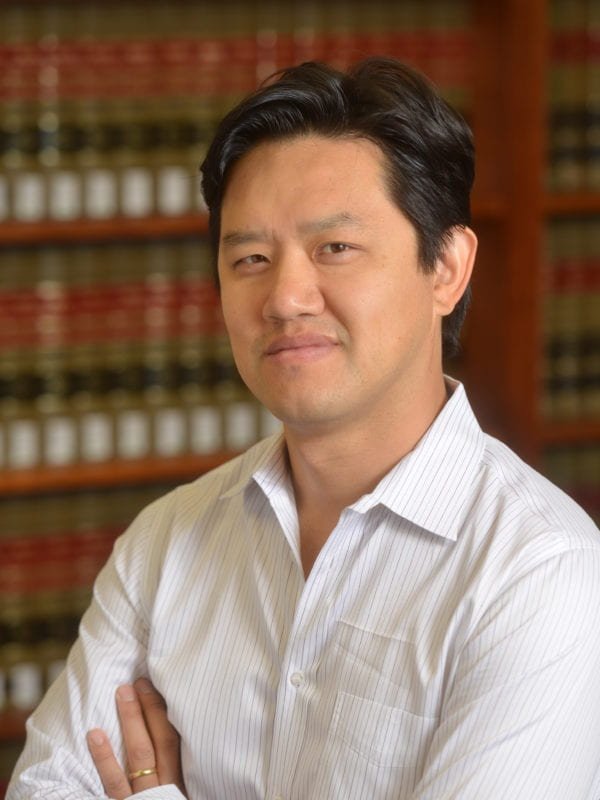Biographies
Jacques deLisle
Jacques deLisle is the Stephen A. Cozen Professor of Law and Professor of Political Science, Director of the Center for the Study of Contemporary China. and Co-Director of the Center for Asian Law, and former Director of the Center for East Asian Studies at the University of Pennsylvania. He is also Director of the Asia Program at the Foreign Policy Research Institute. His research focuses on Chinese law and politics, including China’s engagement with the international legal order, Taiwan’s international status, domestic legal reform in China, and comparative law in East Asia. His books include After Engagement: Dilemmas in U.S.-China Security Relations (2021, co-edited with Avery Goldstein), Taiwan in the Era of Tsai Ing-wen (2021, co-edited with June Teufel Dreyer) To Get Rich Is Glorious: Challenges Facing China’s Economic Reform and Opening at Forty (2019, co-edited with Avery Goldstein), China’s Global Engagement: Cooperation, Competition, and Influence in the 21st Century (2017, co-edited with Avery Goldstein), The Internet, Social Media and a Changing China (2015, co-edited with Avery Goldstein and Guobin Yang), and Political Changes in Taiwan under Ma Ying-jeou (2014, co-edited with Jean-Pierre Cabestan). His writings have appeared in Orbis, Journal of Contemporary China, and many other, international affairs journals, law reviews, and edited volumes. He serves frequently as an expert witness on Chinese law and government policies and as a consultant and advisor to legal reform, development and education programs related to law and China.
Neysun Mahboubi
Neysun A. Mahboubi is a Research Scholar of the Center for the Study of Contemporary China at the University of Pennsylvania, as well as a Lecturer in Law at Penn Law School. He also hosts the CSCC Podcast. His primary academic interests are in the areas of administrative law, comparative law, and Chinese law, and his current writing focuses on the development of modern Chinese administrative law. He has chaired the international committee of the ABA Section of Administrative Law & Regulatory Practice, advised both the Asia Foundation and the Administrative Conference of the United States on Chinese administrative procedure reform, and moderates the Comparative Administrative Law Listserv hosted by Yale Law School. He has taught at Princeton University’s Woodrow Wilson School, the University of Connecticut School of Law, and Yale Law School. He holds a J.D. from Columbia Law School and an A.B. (Politics & EAS) from Princeton University.
Amy Gadsden
As Executive Director for Penn Global, Amy Gadsden works with Penn’s schools and centers to develop and implement strategies to increase Penn’s global engagement both on campus and overseas. She oversees Penn Global’s reporting offices, including International Student and Scholar Services, Penn Abroad, Global Support Services, and Perry World House, which will open its doors on campus in January 2016 and the Provost’s Global Engagement Fund, which supports cutting edge, interdisciplinary research on important global issues. Prior to joining the Provost’s Office, Dr. Gadsden spent five years as Associate Dean for International and Strategic Initiatives at Penn Law, where she built a comprehensive program aimed at expanding the Law School’s global curriculum, professional development opportunities, and reputation and managed cross-disciplinary programs. She established or expanded all of Penn Law’s signature international programs, including the Global Research Seminar, the Bok Visiting Professors Program, and the Penn Law International Internship and Summer Human Rights Fellows Programs. She also played a key role in building Penn Law’s cross disciplinary programs, pioneering new initiatives in law and technology and law and health. As an adjunct faculty member, Dr. Gadsden taught seminars in international human rights and rule of law.
Jude Blanchette
Jude Blanchette holds the Freeman Chair in China Studies at the Center for Strategic and International Studies (CSIS). Previously, he was engagement director at The Conference Board’s China Center for Economics and Business in Beijing, where he researched China’s political environment with a focus on the workings of the Communist Party of China and its impact on foreign companies and investors. Prior to working at The Conference Board, Blanchette was the assistant director of the 21st Century China Center at the University of California, San Diego. Blanchette has written for a range of publications, including Foreign Affairs and Foreign Policy, and his Chinese translations have appeared in the Wall Street Journal and the Financial Times. His book, China’s New Red Guards: The Return of Radicalism and the Rebirth of Mao Zedong, was published by Oxford University Press in 2019. Blanchette is a public intellectual fellow at the National Committee on United States-China Relations and serves on the board of the American Mandarin Society. He is also a senior advisor at Martin+Crumpton Group, a geopolitical risk advisory based in Arlington, Virginia. He holds an M.A. in modern Chinese studies from the University of Oxford and a B.A. in economics from Loyola University in Maryland.
Gerard DiPippo
Gerard DiPippo is a senior fellow with the Economics Program at the Center for Strategic and International Studies (CSIS). He joined CSIS after nearly 11 years in the U.S. intelligence community (IC). From 2018 to 2021, DiPippo was a deputy national intelligence officer for economic issues at the National Intelligence Council, where he led the IC's economic analysis of East Asia. He also was a senior economic analyst at the Central Intelligence Agency, focused on East Asia, South Asia, and global economic issues. DiPippo holds a bachelor's degree in economics and philosophy from Dartmouth College.
Ryan Hass
Ryan Hass is a Senior Advisor to MA and The Scowcroft Group, focusing on China. He provides strategic advice to clients on a global set of issues, with a particular focus on Asia and China. Hass also serves as a fellow in the Foreign Policy program at the Brookings Institution, where he holds a joint appointment to the John L. Thornton China Center and the Center for East Asia Policy Studies. Hass previously served as the director for China, Taiwan, and Mongolia at the National Security Council staff. In that role, he advised President Obama and senior White House officials on all aspects of US policy toward China, Taiwan, and Mongolia, and coordinated the implementation of US policy toward this region among U.S. government departments and agencies. Prior to joining NSC, Hass served as a Foreign Service Officer in US Embassy Beijing, where he earned the State Department Director General’s award for impact and originality in reporting, an award given annually to the officer whose reporting had the greatest impact on the formulation of US foreign policy. Hass also served in Embassy Seoul and Embassy Ulaanbaatar, and domestically in the State Department Offices of Taiwan Coordination and Korean Affairs. Hass was born and raised in Washington state. He graduated from the University of Washington and attended the Johns Hopkins School of Advanced International Studies prior to joining the State Department. He is a term member of the Council on Foreign Relations.
Mary Gallagher
Mary Gallagher is a Professor of Political Science at the University of Michigan, where she is also the Director of the Center for Chinese Studies, and a faculty associate at the Center for Comparative Political Studies at the Institute for Social Research. Her research areas are Chinese politics, comparative politics of transitional and developing states, and law and society. The underlying question that drives her research in all of these areas is whether the development of markets is linked to the sequential development of democratic politics and legal rationality. Put simply, she is interested in the relationships between capitalism, law and democracy. Her empirical research in China is used to explore these larger theoretical questions. Professor Gallagher was a foreign student in China in 1989 at Nanjing University. She also taught at the Foreign Affairs College in Beijing from 1996-1997. She was a Fulbright Research Scholar from 2003 to 2004 at East China University of Politics and Law in Shanghai, China. It was funded by the Fulbright Association and the National Science Foundation. From 2005-2007 she was part of the public intellectual program for the National Committee on US-China Relations, a program that brought together academics and policy makers working on US-China relations.
Mark Wu
Mark Wu is the Henry L. Stimson Professor of Law at Harvard University. He specializes in international trade and international economic law. His research and past writings include work on the impact of China and emerging economies on global governance, technology, trade remedies, environment, and investment. He served recently as a Senior Advisor in the Office of the U.S. Trade Representative (USTR) and earlier as the Director for Intellectual Property. Previously, he also worked as an economist and operations officer at the World Bank in China and as a management consultant specializing in high-tech industries and strategy at McKinsey & Company. He earned a J.D. from Yale Law School, M.Sc. in development economics from Oxford University as a Rhodes Scholar, and A.B. in Social Studies and East Asian Studies from Harvard College.
Maggie Lewis
Margaret Lewis is a Professor of Law at Seton Hall University. Her research focuses on law in China and Taiwan with an emphasis on criminal justice and human rights. Professor Lewis has been a Fulbright Senior Scholar at National Taiwan University, a visiting professor at Academia Sinica, a Term Member of the Council on Foreign Relations, a Public Intellectuals Program Fellow with the National Committee on United States-China Relations, and a delegate to the US-Japan Foundation’s US-Japan Leadership Program. Her publications have appeared in a number of academic journals including the Columbia Journal of Transnational Law, NYU Journal of International Law and Politics, Vanderbilt Journal of Transnational Law, and Virginia Journal of International Law. She also co-authored the book Challenge to China: How Taiwan Abolished its Version of Re-Education Through Labor with Jerome A. Cohen. Professor Lewis received her J.D., magna cum laude, from NYU School of Law, where she was inducted into the Order of the Coif and was a member of Law Review. She received her B.A., summa cum laude, from Columbia University and also studied at the Hopkins-Nanjing Center for Chinese and American Studies in Nanjing, China.
Rory Truex
Rory Truex is Assistant Professor of Politics and Public Affairs. He studies comparative politics, focusing on Chinese politics and non-democratic regimes. His dissertation and book project, “Representation Within Bounds,” explains the nature of legislator behavior in China’s National People’s Congress. His research on Chinese politics is published or forthcoming in the American Political Science Review and Comparative Political Studies, and has been featured in the Wall Street Journal and New York Times. Current projects explore how Chinese citizens evaluate their political system; the relationship between media bias and credibility in non-democracies; and patterns in dissident behavior and punishment. He received his undergraduate degree from Princeton in 2007 and Ph.D. in political science from Yale in 2014.
Alex Wang
Alex Wang is Professor of Law at UCLA School of Law and Faculty Co-Director of the Emmett Institute on Climate Change and the Environment. He is a leading expert on environmental governance and the law and politics of China. His previous research has examined, among other things, the institutional design of environmental law and policy, environmental bureaucracy, public interest litigation, information disclosure, and environmental courts. His work has addressed air pollution, climate change, and other environmental issues.
Prior to 2011, Wang was a senior attorney for the Natural Resources Defense Council (NRDC) based in Beijing and the founding director of NRDC's China Environmental Law & Governance Project. In this capacity, he worked with China's government agencies, legal community, and environmental groups to improve environmental rule of law and strengthen the role of the public in environmental protection. He helped to establish NRDC's Beijing office in 2006. He was a Fulbright Fellow to China from 2004-05.
Wang holds a J.D. from NYU School of Law and earned his B.S. in Biology with distinction from Duke University. He is a member of the Council on Foreign Relations, as well as a member and former fellow (2008-10) of the National Committee on U.S.-China Relations. He is a regular speaker on issues related to China and environmental protection.
Dan Mattingly
Daniel Mattingly is Assistant Professor of Political Science. He studies the political economy of development and authoritarian politics with a focus on China. His book, The Art of Political Control in China (Cambridge University Press) examines how China’s authoritarian state controls protest and implements ambitious policies from sweeping urbanization schemes to family planning initiatives. His current work examines the role of the military, nationalism, and surveillance technology in Chinese politics. He received a Ph.D. from the University of California, Berkeley, and a B.A. from Yale University.
Sheena Greitens
Sheena Chestnut Greitens is Associate Professor at the LBJ School of Public Affairs at the University of Texas at Austin, and an affiliate of both the Strauss Center and Clements Center for National Security. From 2015-2020, she was assistant professor of political science at the University of Missouri. Her research focuses on American national security, East Asia, and authoritarian politics and foreign policy. Her work on China and North Korea has appeared in academic journals and edited volumes in English, Chinese, and Korean, and in major media outlets; she has also previously testified to Congress on security issues in the Indo-Pacific. Her first book, Dictators and their Secret Police: Coercive Institutions and State Violence(Cambridge, 2016) received the 2017 Best Book Award from both the International Studies Association and the Comparative Democratization section of the American Political Science Association. She holds a doctorate from Harvard University; an M.Phil from Oxford University, where she studied as a Marshall Scholar; and a bachelor’s from Stanford University. She is currently working on a book manuscript on China’s domestic security policies and their implications for global politics.
Angel Hsu
Angel Hsu is an Assistant Professor of Public Policy and the Environment at UNC Chapel Hill and Founder/Director of the Data-Driven EnviroPolicy Lab, an interdisciplinary research group that innovates and applies quantitative approaches to pressing environmental issues. Her research explores the intersection of science and policy and the use of data-driven approaches to understand environmental sustainability, particularly in the areas of climate change and energy, urbanisation and air quality.
Focusing on China and the Global South, Dr. Hsu has provided expert testimony to the U.S. Senate Committee on Energy and Natural Resources, US-China Economic Security and Review Commission and is a member of the National Committee on US-China Relations and a Public Intellectual Program Fellow. She is a lead and contributing author to global climate science assessments, including the IPCC Sixth Assessment Report and the UNEP Emissions Gap Report. In addition to publishing in academic journals, Dr. Hsu has been committed to public outreach and was a TED Climate Countdown and TED 2018 Age of Amazement Speaker and recognized as an inaugural Grist 50 leader. She previously held a joint appointment as Assistant Professor of Environmental Studies at Yale-NUS College in Singapore and the Yale School of Forestry and Environmental Studies as an adjunct. She holds a PhD in Environmental Policy from Yale University, an MPhil in Environmental Policy from the University of Cambridge, and a BS in Biology and BA in Political Science from Wake Forest University in Winston-Salem, NC.
Robert Williams
Robert Williams is a senior research scholar, lecturer, and the executive director of the Paul Tsai China Center at Yale Law School. He is also a nonresident senior fellow at the Brookings Institution and a contributing editor at Lawfare. He focuses on U.S.-China relations and Chinese law and policy, with particular interests in technology policy and national security. His recent research and Track II dialogues cover issues of cybersecurity, trade and investment policy, technology governance, and international law. Williams received a B.A. from Vanderbilt University and a J.D. from Harvard Law School.
Julia Voo
Julia Voo is a Cyber Fellow at the Harvard Kennedy School’s Belfer Center for Science and International Affairs. She leads the team behind Belfer’s National Cyber Power Index, and was formerly the Research Director for the China Cyber Policy Initiative at Belfer. Her areas of research concern geotech strategy, including the Digital Silk Road, industrial policy, and technical standards for strategic technologies. Voo has research affiliations with the Future of Humanity Institute (Oxford), the Hague Program for Cyber Norms (Leiden), and the China-Africa Research Initiative (Johns Hopkins). A 2019 graduate of Harvard Kennedy School’s Master in Public Administration program, Julia served earlier at the British Embassy in Beijing, where she covered China’s cyber and artificial intelligence policy, technical standards, and other trade policy issues. Altogether, she lived in Beijing for seven years, with stints at the EU Delegation to China and at the Carnegie-Tsinghua Centre for Global Policy. Julia’s research, writings and commentary have featured in several media outlets, including the Financial Times, the Economist, BBC World News, Wired Magazine, and Cyberscoop.






























